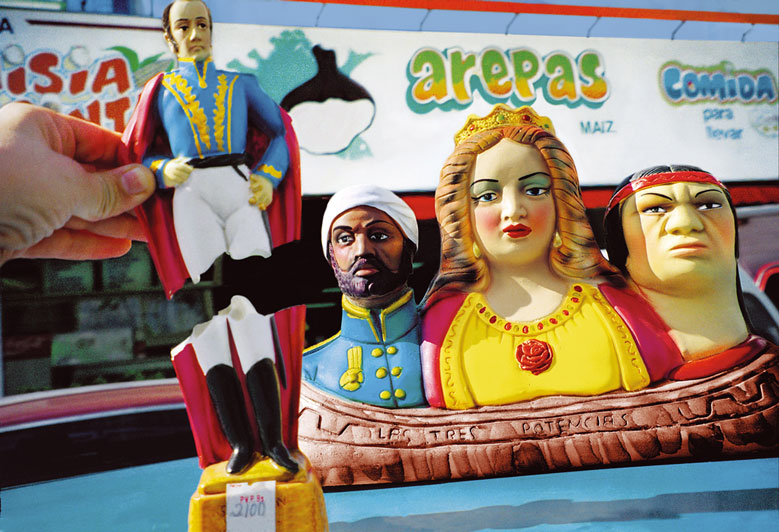Latin America.
Argentina.
Homeland as a melting pot.
Those who were there already and those who arrived in boats.
What is a culture with its own identity like?
I am a European born in exile, Borges said.
Gardel, the tango, Che Guevara...
The Boca Juniors football club.
The continual need for a psychoanalyst: "Mummy beats you because she loves you and it hurts me more than it hurts you..."
The invisible signs left by dictatorship.
Advertising. Journalism. The art market.
Buenos Aires: making my face look interested in what is said in meetings, giving tips, losing my wallet, pedal pushing like an idiot while watching television on the exercise cycle at the gym.
The above was inspiration. Now I'm going to describe the inner gesture, the direction, the action itself.
I climb the last lookout that is standing in what used to be an area of forts, on the frontier, on the outer edge of the Pampas.
The secret is to be silent, look North, toward immense America, and decode what the wind tells you.
Galloping, shouts of the Indian raider cutting throats, gunshots, brandy festivities.
The dew. The inevitable calm.
Cries of captive women sounding like orgasms.
Later, allow yourself to soak in Bolívar's most refined spirit.
Allow yourself to become possessed.
Reincarnate in the ferocity of the Indian Guaicaipuru.
Listen to Iemanjá, to Ochum, to Obatalá.
Take in the mysticism and idealism of the murals of Mexico and then switch, adapting them to current communication codes in this senseless global village-Armani-Dolce Gabbana-missiles to Belgrade-virtual reality.
Fighting with a bare machete.
Feel yourself among the followers of the prophet Martí.
Feel you're Maradona.
Drink a midday caipirinha until the sun goes down.
Gather a group to sing in restaurants: cuatro, maracas, guitar and harp.
Go to play with ghosts of the siesta living in forests of the Paraguayan Chaco.
Feel the intensity of a mad love: rojaijú, guaraní, cuñataí...
Pop Latino: A tottering shopping center of painted cardboard lashed by Patagonian winds.
Pop Latino: I exchange the deep terracotta of High Plateau America for Tahitian red, calypso green or scarlet red.
Color of the cars in Maracaibo.
To work with visual stock phrases and risk taking the obvious route: closeup, wideangle, background, social message.
A touch of humor and a certain lightness in the gaze.
Avoid whimpering for fear of weeping to death.
"It's not your fault the world is so ugly", says Manu Chao in a fashionable record.
I say like the bolero:
"I go home and you're not there.
I look for you.
You're no longer there".
Marcos López

